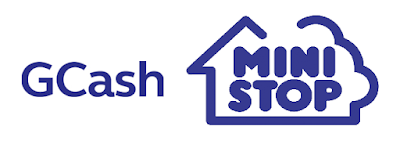Globe has partnered with De La Salle University (DLSU) to enhance the delivery of world class Science, Technology, Engineering and Mathematics (STEM) education to its students.
The collaboration between the company and one of the country’s premier universities aims to develop modules and specialized courses that will promote more interest to the educational institution’s STEM academic programs.
“De La Salle University has been working with different industries and academic institutions to foster collaborations and in various fields. The DLSU Intellectual Property Office and the Innovation and Technology Office work to connect DLSU researchers to industry and this is one example of such a role. We believe that STEM education is relevant not only in this time of the pandemic but also in light of the 5th Industrial Revolution. We welcome Globe as a partner in developing STEM education in hopes of serving more people in enriching their skills and advancing their careers. With Globe’s expertise in digital technology, reach, and commitment to innovation, we are confident that this partnership will contribute to the Lasallian mission of being a catalyst for meaningful social transformation,” said Atty. Christopher Cruz, Director of the DLSU Intellectual Property Office.
Globe, on the other hand, believes that strengthening students' knowledge and skills in STEM will help them nurture innovation that will eventually equip the nation with the workforce of the future, and targets to inspire other schools and colleges to upgrade and prioritize similar courses and programs in the coming years.
“We aim to develop, modernize and extend new courses and class offerings for adoption in the tertiary level, not just for the partner university, but for adoption by other campuses, most especially state universities that are looking to deepen their offerings around STEM. This includes nurturing a mindset that embraces the digital age and values the need to make full use of technology and innovation to drive long term and lasting progress,” Yoly Crisanto, Globe SVP for Corporate Communications and Chief Sustainability Officer said.
Demand for STEM-related occupations is among the highest and best-paid jobs in the 21st century. Unfortunately, students from low-income families are substantially underrepresented in STEM, which in reality, holds so many employment opportunities as an industry. Globally, participation of low-income students in STEM programs are at a much lower rate than their high-income counterparts. One main problem is lack of access of families to resources that help enable STEM education. Many low-income families cannot afford high quality gadgets or stable internet connection which has considerable impact on a child’s exposure and early proficiency in technology, as well as limits their ability to pursue their interests and undertake independent learning, putting them at a disadvantage.
In addition, children from low-income families are usually enrolled in schools with limited STEM educational resources. This in turn, lowers the quality of STEM education often resulting in the rote memory approach, which is a memorization technique for students without really knowing what they are trying to learn, and with very little time allotted for enriching hands-on experiences. All these have consequences on widening the STEM gap in terms of interest, aptitude, and mastery of fundamental concepts that serve as a prerequisite for higher level studies in the field.
“With our partnership with DLSU, we hope to be able to deliver new and innovative learning modules catering to more students especially those who are underprivileged. We hope that this partnership will spark stronger collaboration with the academe to improve the quality of education as well as make it more accessible to all,” Crisanto added.
The scope of the partnership between Globe and DLSU includes joint development of educational programs, which can extend to various strands such as articulated degree programs, non-degree programs, certification programs, and or training programs, particularly STEM; sharing and creation of materials and resources; joint conduct of technical and business development activities, such as field testing, prototype development, proof-of-concept testing, customer discovery, and market studies for DLSU Innovations; joint conduct of research projects in particular fields of study, and other related subject matters.
Globe is a strong advocate of quality education and is committed to 10 UN Sustainable Development Goals in order to achieve a better and more sustainable future for all.
To learn more about Globe’s sustainability efforts, visit https://www.globe.com.ph/about-us/sustainability.html








